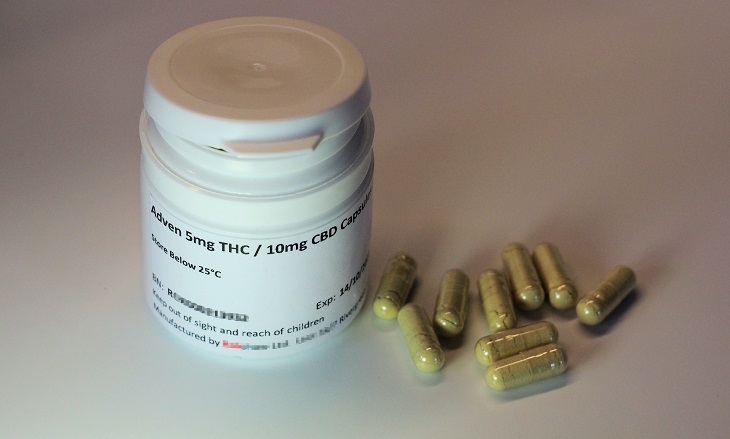The landscape of medical marijuana has been evolving rapidly in various states across the United States, including Iowa. With a growing recognition of its potential therapeutic benefits, Iowa has established a medical marijuana program to provide eligible patients with access to cannabis-based treatments. In this comprehensive guide, we will delve into the various aspects of the Iowa medical marijuana program, including laws, regulations, patient rights, and the application process.
Iowa Medical Marijuana Program: A Brief Overview
Iowa’s Medical Cannabis Program (also known as the Medical Cannabidiol Program), overseen by the Iowa Department of Health and Human Services, has been established to provide eligible patients with a legal pathway to access medical cannabis for therapeutic purposes. Rooted in scientific research and patient needs, the program aims to offer a compassionate approach to healthcare while maintaining strict adherence to state regulations. The Iowa medical marijuana program represents a significant step forward in providing patients with alternative treatment options.
The program aims to alleviate the suffering of patients by harnessing the potential benefits of cannabis while adhering to laws and medical regulations. From 2014, this program has allowed individuals with qualifying medical conditions to access medical cannabis (at first, only low-THC cannabis oils) under specific regulations. After being revised in 2017 and 2019, the program’s list of qualifying conditions has grown, and low-THC preparations are not the only option any longer. However, the program is still quite restrictive, particularly when compared to other states’ MMJ programs; there are only two authorized manufacturers of MMJ products in Iowa, home cultivation is still illegal, and there is a limit to the amount of THD patients can access every 90 days.
Iowa Medical Cannabis Laws: Navigating the Legal Landscape
Understanding the legal framework is crucial for patients, caregivers, and healthcare providers. Iowa’s medical cannabis laws outline the rights and responsibilities of those involved in the program. These laws define the scope of medical marijuana use, possession limits, and conditions for obtaining a medical marijuana card. By staying up to date with these laws, patients can make informed decisions regarding their treatment plans and ensure they never run into trouble.
Healthcare providers play a crucial role in the program by evaluating patients and determining whether medical cannabis could be a suitable treatment option. They must be registered with the Iowa Medical Cannabidiol Board and complete a training course to gain the necessary expertise in assessing patients’ conditions and recommending appropriate treatment plans. This ensures that patients receive guidance from qualified professionals who understand the potential benefits and risks associated with medical cannabis.
Iowa Medical Cannabidiol Board: Oversight and Regulation
The Iowa Medical Cannabidiol Board, comprising eight physicians and one law enforcement representative, is responsible for overseeing the program’s operations. According to the Iowa HHS official website, this board’s duties are to:
- Accept and review petitions to add medical conditions, medical treatments, or debilitating diseases to the list of debilitating medical conditions for which the medical use of cannabidiol would be medically beneficial
- Make recommendations to remove or add debilitating medical conditions to the list of allowable debilitating medical conditions for which the medical use of cannabidiol would be medically beneficial
- Work with Iowa HHS regarding the requirements for licensure of medical cannabidiol manufacturers and dispensaries, including licensing procedures
- Advise Iowa HHS regarding the location of medical cannabidiol manufacturers and dispensaries throughout the state
- Make recommendations related to the form and quantity of allowable medical uses of cannabidiol
Iowa CBD Regulations: Cannabidiol in Focus
Cannabidiol (CBD) has gained popularity for its potential therapeutic effects without the psychoactive properties of THC. Iowa has established specific regulations regarding the use and distribution of CBD products. These regulations ensure that CBD products meet quality and safety standards, providing patients with access to reliable and effective treatments.

Image by Nataliya Vaitkevich on Pexels
Qualifying Conditions for Medical Marijuana in Iowa
The list of qualifying illnesses for the Iowa medical marijuana program is based on scientific research and medical consensus. Iowa medical marijuana qualifying illnesses encompass a range of conditions for which medical cannabis may offer therapeutic benefits.
To be eligible for the Iowa medical marijuana program, patients must have one or more of the following conditions:
- Cancer – if the illness or its treatment produces one or more of the following: severe or chronic pain, nausea or severe vomiting, cachexia or severe wasting.
- Seizures
- Crohn’s disease
- Chronic pain
- Multiple Sclerosis with severe and persistent muscle spasms
- AIDS or HIV (as defined in Iowa Code, section 141A.1)
- Amyotrophic lateral sclerosis (ALS)
- Parkinson’s disease
- Post-Traumatic Stress Disorder (PTSD)
- Any terminal illness with a probable life expectancy of under one year – if the illness or its treatment produces one or more of the following: severe or chronic pain, nausea or severe vomiting, cachexia or severe wasting
- Ulcerative colitis
- Severe, intractable pediatric autism with self-injurious or aggressive behaviors
- Severe, intractable autism with self-injurious or aggressive behaviors
- Corticobasal degeneration
These conditions have been identified based on scientific research and medical consensus regarding the potential benefits of medical cannabis in managing symptoms and improving patients’ quality of life.
How to Get a Medical Marijuana Card in Iowa
Obtaining a medical marijuana card is a crucial step for eligible patients to access medical cannabis legally. The process involves:
- Scheduling an appointment with a valid healthcare practitioner (MD/DO, ARNP, PA, or podiatrist)
- Having your practitioner complete a Healthcare Practitioner Certification Form
- Using the online registration system to submit your application (if you are unable to apply online, contact the Iowa Department of Health and Human Services at cannabidiol@idph.iowa.gov or on 515-725-2076).
By following this process diligently and submitting the required documents, patients can gain legal access to medical cannabis products.
Registered Caregivers for Medical Marijuana in Iowa
Patients who require assistance in obtaining and using medical cannabis can designate registered caregivers. These caregivers play a crucial role in supporting patients’ treatment plans and ensuring they receive the care they need.
Iowa Medical Marijuana Card Application Process
The application process for a medical marijuana card involves several steps, as outlined above. This process ensures that only eligible patients gain access to medical cannabis, maintaining the integrity of the program and preventing misuse.
Both patients and caregivers are able to apply for an Iowa MMJ card. For more information, you can consult the following documents provided by the State of Iowa Department of Health and Human Services:
Iowa Medical Cannabis Patient Registry
The patient registry serves as a secure database that tracks participants in Iowa’s medical marijuana program. It ensures that patients, caregivers, and healthcare providers can access accurate and up-to-date information about patients’ eligibility and treatment plans.
Iowa Medical Marijuana Dispensaries: Accessing Treatment
Medical cannabis products available in Iowa are regulated to ensure quality and patient safety. These products typically include different oral and topical forms. The Medical Cannabidiol Program establishes limits on the concentration of tetrahydrocannabinol (THC) in these products to prevent misuse and maintain patient wellbeing.
Dispensaries authorized by the state play a critical role in providing patients with access to these products. These licensed facilities adhere to strict regulations and provide patients with information about product options, dosages, and usage guidelines. Patients can currently access MMJ in Iowa at five different dispensaries:
- Bud & Mary’s Sioux City
- Bud & Mary’s Windsor Heights
- Iowa Cannabis Company West (Council Bluffs)
- Iowa Cannabis Company (Waterloo)
- Iowa Cannabis Company East (Iowa City)
Iowa Medical Marijuana Delivery Options
To enhance accessibility, some dispensaries in Iowa offer delivery options for medical marijuana products. This service ensures that patients who may have mobility issues or live in remote areas can still access the treatment they need.
THC Limits for Medical Marijuana in Iowa
As mentioned above, THC is the psychoactive component of cannabis, and Iowa imposes specific limits on the amount of THC in medical cannabis products to prevent misuse and maintain patient safety. These limits are carefully determined to balance potential benefits with potential risks.
Generally, patients can access cannabis preparations containing up to 4.5 grams of THC every 90 days. There are two exceptions to this limit:
- Any patient certified for a terminal illness (a healthcare practitioner may indicate more THC per 90 days at the time of certification)
- A patient’s original healthcare practitioner certifies them for additional THC after the patient has participated in the program
Waiver forms for the THC limit can be downloaded here and submitted here.
Iowa CBD Oil Legality: Navigating the Gray Area
While CBD products have gained popularity in recent years, it’s essential to understand their legality in Iowa. The state allows the sale and use of CBD products as long as they meet specific criteria. Patients must be aware of these criteria to ensure they are using CBD products within the confines of the law.
Legal forms of medical cannabis in Iowa include:
- Oral forms (tablets, capsules, liquids, tinctures and sublingual forms)
- Topical forms (gels, ointments, creams, lotions and transdermal patches)
- Nebulizable inhaled forms
- Suppositories (rectal and vaginal)
- Vaporization
It’s important to note that no flower products (such as loose leaf marijuana, “joints,” etc.) are allowed, nor are THC-infused edibles (such as gummies, chocolates, etc.).

Image by Stephen Cobb on Unsplash
Iowa CBD Product Availability
The availability of CBD products in Iowa is influenced by state regulations and market trends. Patients can explore various CBD products available in licensed dispensaries, considering factors such as potency, formulation, and intended use.
Iowa Medical Cannabis Patient Rights
Patients participating in the medical marijuana program have rights that protect their privacy and access to treatment. These rights include confidentiality of medical information and protection against discrimination in employment and housing. Knowing these rights empowers patients to navigate their treatment journey with confidence.
Iowa Medical Marijuana Possession Limits
To prevent abuse and ensure responsible use, Iowa enforces THC limits in its MMJ products. These limits are designed to strike a balance between ensuring patients can treat their conditions adequately and preventing potential misuse. However, the state does not enforce product quantity possession limits for medical marijuana.
Iowa Medical Marijuana Doctor Recommendations
Patients seeking to participate in the medical marijuana program need a doctor’s recommendation. Qualified healthcare providers play a vital role in evaluating patients’ conditions and determining whether medical cannabis is a suitable treatment option.
For assistance in obtaining medical certification for your Iowa MMJ application, visit MMJRecs.
Iowa Medical Marijuana Reciprocity with Other States
Iowa’s medical marijuana program may have reciprocity agreements with certain other states. This agreement allows eligible patients from those states to access medical cannabis in Iowa, subject to specific regulations.
Iowa Medical Marijuana Regulations for Minors
As mentioned above, special regulations apply when minors are involved in the medical marijuana program. These regulations address the unique considerations and safeguards necessary to ensure the well-being of underage patients. MMJ can be purchased on a minor’s behalf by their designated primary caregiver, who must be designated by the MMJ patient’s physician.
***
The Iowa medical marijuana program represents a significant step forward in offering alternative treatment options for eligible patients. By understanding the nuances of the program, including laws, regulations, patient rights, and the application process, individuals can make informed decisions about their healthcare journey. As the medical cannabis landscape continues to evolve, staying informed and adhering to legal requirements will remain paramount for patients, caregivers, and healthcare providers alike.
